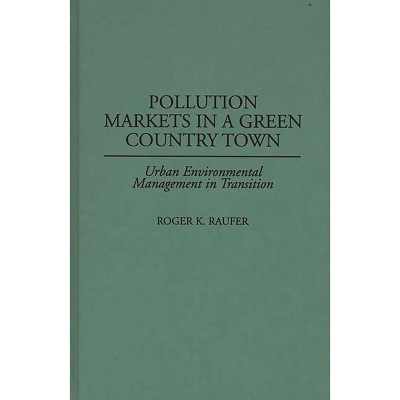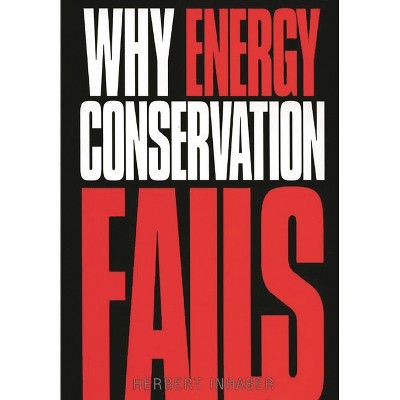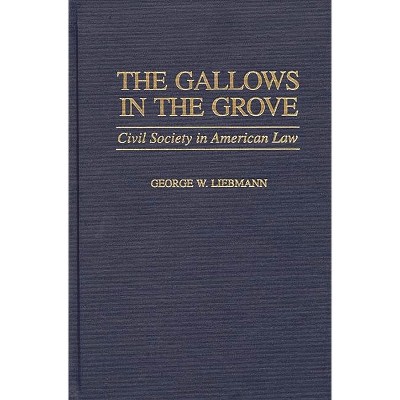Sponsored

Downstream and Upstream Ecologists - by Jean Mercier & Unknown (Hardcover)
In Stock
Sponsored
About this item
Highlights
- Mercier looks at the environmental movement from an in-depth international perspective and seeks to analyze the spectrum of positions taken.
- About the Author: JEAN MERCIER is Professor of Political Science and Public Administration at Université Laval in Quebec City, Canada.
- 240 Pages
- Science, Environmental Science
Description
About the Book
Mercier looks at the environmental movement from an in-depth international perspective and seeks to analyze the spectrum of positions taken. He shows how the movement is an enduring one, and he demonstrates how it is intimately related to the development of media and to fundamental social and institutional trends of our time. Although environmentalists and sociologists have an often bewildering variety of positions and theories, some being incompatible with others, they share commom values. Mercier offers the image of the protoplasm, the viscous matter that surrounds the living cell, as a metaphor to explore these values.
Although environmentalists and ecologists all over the globe share certain basic goals--less consumption, less waste, less energy use--there is a bewildering variety of ideas, concepts, and theories, some incompatible with others, that is associated with the movement. Indeed, one might more accurately think of a series of movements rather than one movement.
Mercier divides the movement into downstream ecologists--sometimes called environmentalists--who are essentially concerned about the quality of the air, the water, and the soil, and the upstream ecologists, who essentially believe that the deterioration of the quality of the air, water, and soil is a symptom of some larger (upstream) phenomenon. The upstream ecologists, in turn, are divided into subgroups, among them the Social Ecologists, who are the inheritors of the traditional positions of the left, and the Deep Ecologists, who attribute the state of the environment to a modern, excessively specialized and segmented outlook that eventually leads to a loss of sensitivity and a disregard for nature and our environment. Using the image of the protoplasm, the viscous matter that contains the living cell, Mercier concludes by relating these and other patterns to a postmodern aesthetic which, itself, is strongly influenced by our changing communication environment. A major analysis that will be of importance to policymakers, scholars, and researchers involved with environmental issues and contemporary social patterns that go beyond the environment per se.
Book Synopsis
Mercier looks at the environmental movement from an in-depth international perspective and seeks to analyze the spectrum of positions taken. He shows how the movement is an enduring one, and he demonstrates how it is intimately related to the development of media and to fundamental social and institutional trends of our time. Although environmentalists and sociologists have an often bewildering variety of positions and theories, some being incompatible with others, they share commom values. Mercier offers the image of the protoplasm, the viscous matter that surrounds the living cell, as a metaphor to explore these values.
Although environmentalists and ecologists all over the globe share certain basic goals--less consumption, less waste, less energy use--there is a bewildering variety of ideas, concepts, and theories, some incompatible with others, that is associated with the movement. Indeed, one might more accurately think of a series of movements rather than one movement. Mercier divides the movement into downstream ecologists--sometimes called environmentalists--who are essentially concerned about the quality of the air, the water, and the soil, and the upstream ecologists, who essentially believe that the deterioration of the quality of the air, water, and soil is a symptom of some larger (upstream) phenomenon. The upstream ecologists, in turn, are divided into subgroups, among them the Social Ecologists, who are the inheritors of the traditional positions of the left, and the Deep Ecologists, who attribute the state of the environment to a modern, excessively specialized and segmented outlook that eventually leads to a loss of sensitivity and a disregard for nature and our environment. Using the image of the protoplasm, the viscous matter that contains the living cell, Mercier concludes by relating these and other patterns to a postmodern aesthetic which, itself, is strongly influenced by our changing communication environment. A major analysis that will be of importance to policymakers, scholars, and researchers involved with environmental issues and contemporary social patterns that go beyond the environment per se.Review Quotes
"A superbly done, important piece of work that deserves a wide audience...It will be considered a valuable resource by the entire community of those interested in environment and ecology for what it reveals about the details of "who the players are" in the political game and social movement dealt with here. (Mercier's) interpretive analysis and the rhetoric he employs in stating it are profoundly exciting and even inspiring."-Orion White, Center for Public Administration and Policy Virginia Polytechnic Institute and State University
?This book may be useful as a supplement in a political theory or envirnomental politics course.?-Community, Environment, and Population
"This book may be useful as a supplement in a political theory or envirnomental politics course."-Community, Environment, and Population
About the Author
JEAN MERCIER is Professor of Political Science and Public Administration at Université Laval in Quebec City, Canada. He has published on administrative and ecological issues in a wide variety of publications.










